Post
A catch
Save a catch to start your fishing logbook. You will be able to to share it with the community if yo want!
A fishing trip
Post an ad to go fishing with other fishermen
Save a catch to start your fishing logbook. You will be able to to share it with the community if yo want!
Post an ad to go fishing with other fishermen
Share a thought, a question with the community
My favorite cities
×Join our 709 fishermen in Felthorpe in Norfolk where there's 1 spot. The fishing forecast is currently 4.7. The most caught fishes here are the stone loach, the ide fish, the tench fish and the chub fish. Come try the most famous fishing techniques like the how to fish for sole at sea?, cast fishing with oak seed, surfcasting for sole or tips on material for mullet fly fishing.
Our fishing forecast of Felthorpe indicates the best time to go fishing in this city.
The Stone Loach
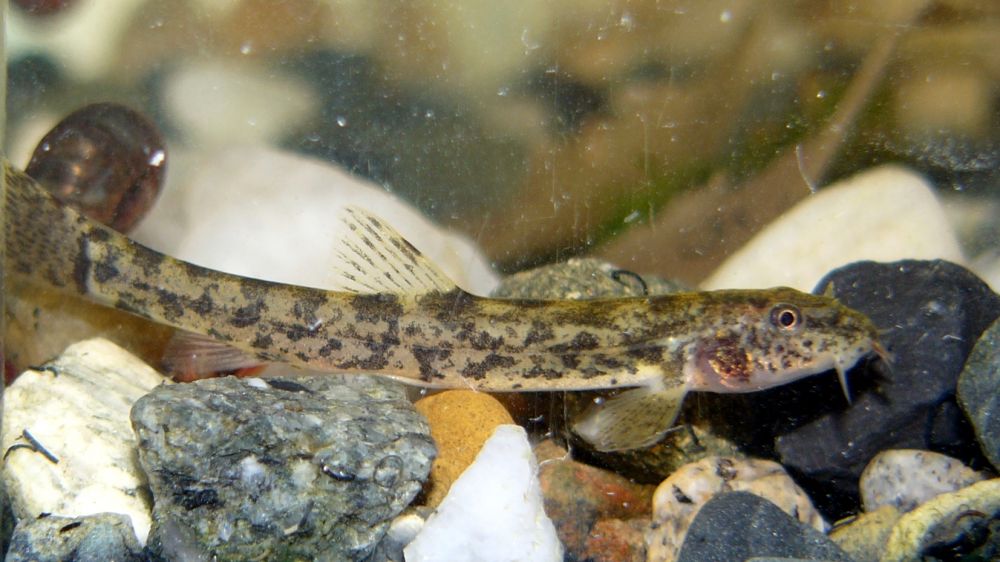
The Stone Loach belongs to the Balitoridae family. The current size of the Stone loach is about 10-12 cm and maximum 20 cm. Its longevity is 5 to 6 years. The breeding period takes place between April and July. Fertility is 50,000 to 80,000 eggs. Fishing is allowed from June to March. The stone loach has an elongated body, subcylindrical in its front part and covered with tiny scales. The head is broad and flattened. The mouth is equipped with three pairs of barbells on the upper lip. She does not have an erectile spine under her eye. The caudal fin is slightly indented, almost straight and punctuated with black. The back is brownish in color, the flanks are yellowish and the belly is clear. A dark band is present at the base of the caudal fin.
The Stone Loach is a famous fish you can catch in Felthorpe.The Ide fish
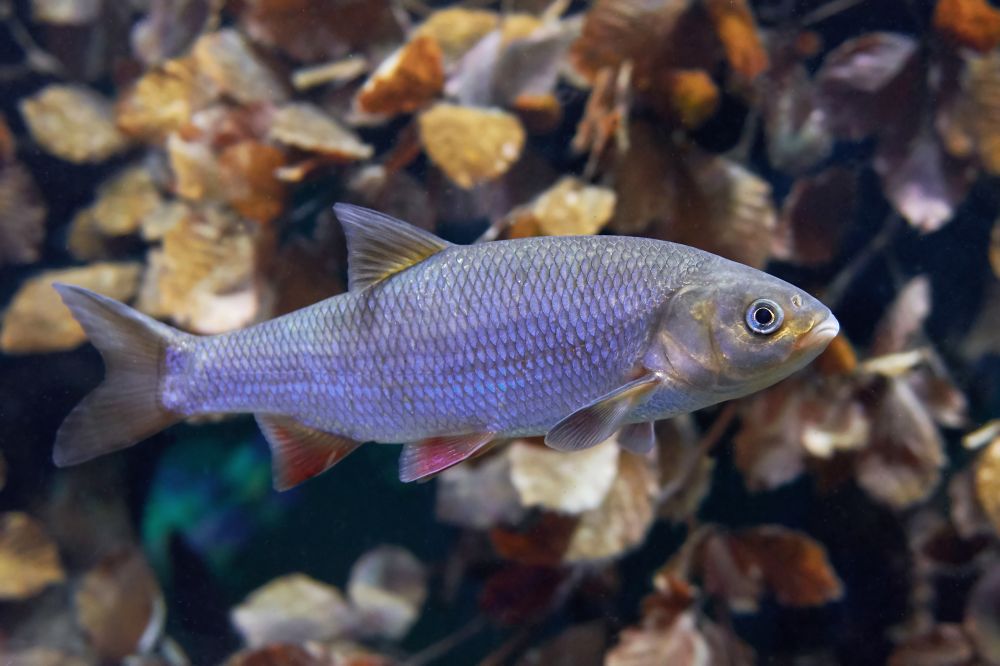
The Ide fish belongs to the Cyprinidae family. Its size is generally between 30 and 50 cm but this fish can reach a maximum length of 80 cm for a weight of 5 kg and an age of nearly 20 years. Spawning takes place from March to April. Females lay between 60,000 and 160,000 eggs. The fishery is open from June to March. The body is long and laterally compressed with a terminal mouth pointing upwards. The head is strong with a small mouth, obtuse snout and yellow eyes. The back is rounded. The anal fin has a concave rear edge. The back and upper part of the head are greyish-green to brown; the yellowish-brown flanks have silvery or golden reflections; the belly is whitish. The fins are dark except for the pelvic, ventral and anal fins which are frankly red. In older and larger specimens, the body color may turn yellow/bronze.
The Ide fish is a famous fish you can catch in Felthorpe.The Tench fish
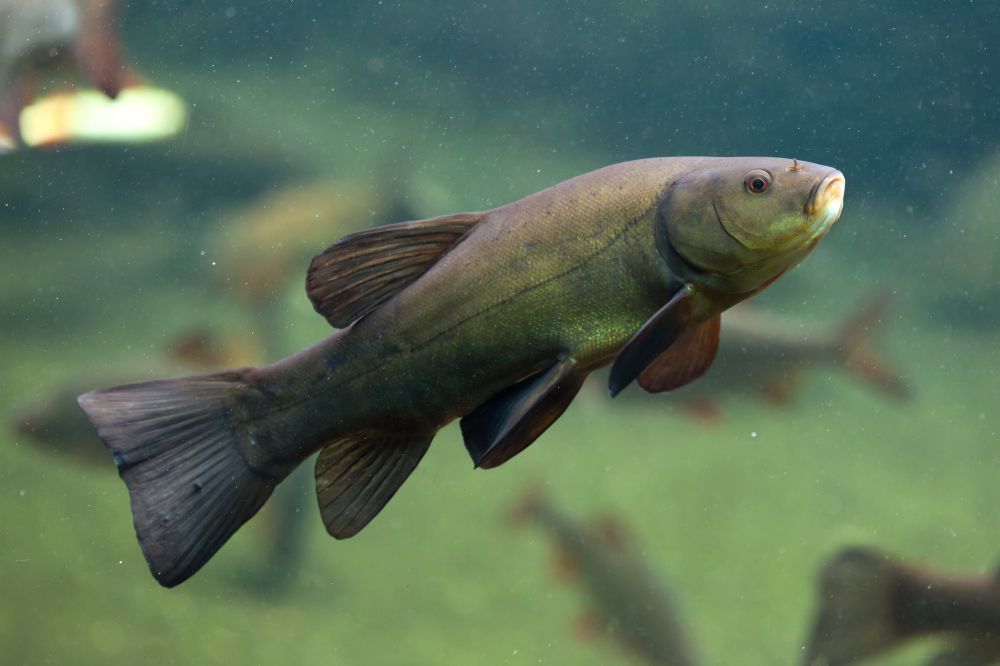
The Tench fish belongs to the Cyprinidae family. It rarely exceeds a length of 50 cm for a weight of 2 kg (maximum 70 cm for 8 kg). He can live up to 15 years. It breeds from May to August. Fertility is 300,000 to 800,000 eggs. It can be fished all year round. The Tench is a fish with a stocky body and compressed laterally. Its head is triangular with a small red-orange eye and a relatively long snout. Its mouth is terminal, small with thick lips and a well-developed barbell at each corner. Its characteristic caudal pedicle is rounded and short. Its skin is thick and viscous. Its scales are very small and covered with a thick layer of mucus. All fins are rounded. The caudal fin has 19 rays. The overall coloring is olive green (sometimes dark green or even almost black) with golden reflections on the ventral side. From the age of two years, males can be distinguished from females: they have ventral fins that reach the anus and the second ray of these fins becomes stronger than the others. It is a groundfish, rather shy, that can be found in small groups of maximum 4 individuals.
The Tench fish is a famous fish you can catch in Felthorpe.The Chub fish
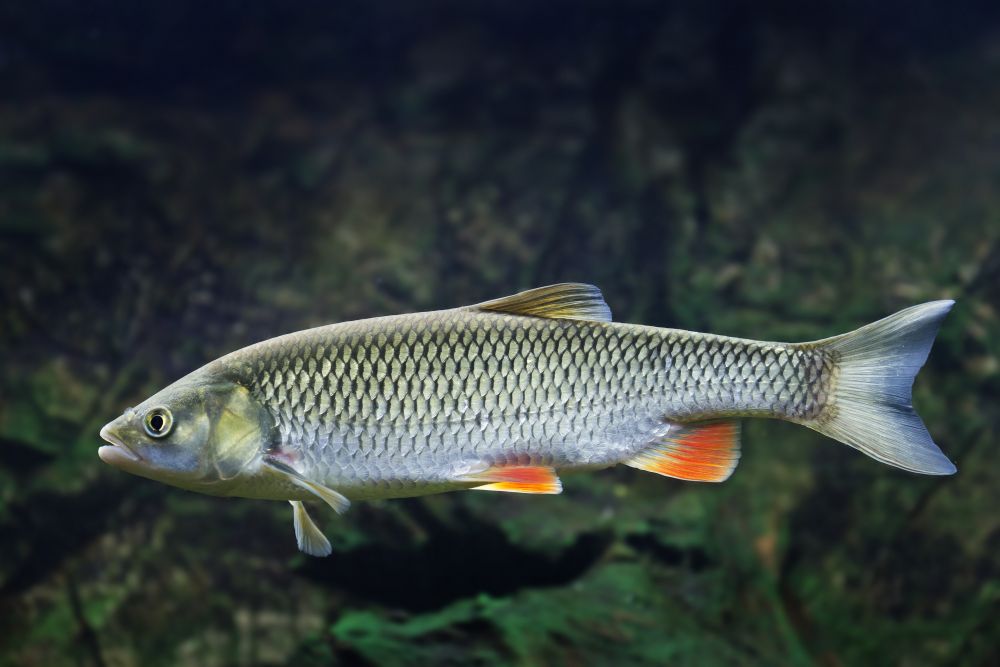
The chub fish belongs to the family of Cyprinidae. The common catch size of the chub fish varies from 15 to 30 cm, but it can reach 80 cm for a weight of 8 kg. The longevity is estimated at about ten years. The reproduction of the chub takes place between April and June. The female lays 20,000 to 100,000 eggs. It can be fished from July to Mars. The body is long and cylindrical with a terminal mouth, pointing upwards, with large lips. The big head has a flat forehead. The large, black-edged scales give it a reticulated appearance. The anal fin has a convex rear edge. The back and upper part of the head are greyish-green to brown in color; the flanks have silvery or even golden highlights; the belly is whitish. The fins are grey except for the bellies and the pale red anal fin.
The Chub fish is a famous fish you can catch in Felthorpe.The Grayling
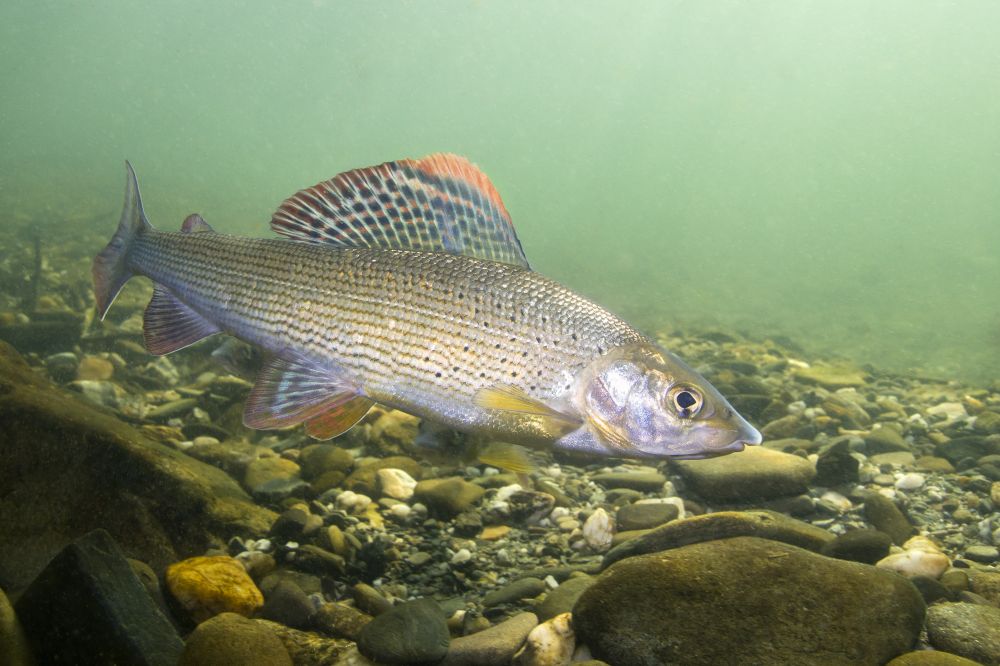
The Grayling belongs to the Salmonidae Family. The average size is 35 cm for 400 g (maximum 50 cm for 1.5 kg). Life expectancy can reach 5 years, rarely more. Breeding takes place in spring. The number of eggs laid depends on the size of the female and ranges from 600 to 8000 eggs. The fishery is open from June to December. The body, compressed laterally, is covered with large scales, some of which, pigmented, draw longitudinal streaks, highlighted with black spots. The head is small, the mouth opens downwards. The muzzle is thin, the eyes have forward pointing pupils and golden rings. The distinctive signal of the species is the long, high dorsal fin, supported by about 20 soft rays. The whole forms, over nearly a quarter of the length of the fish, an iridescent flag of violet to purple coloring, also called a vexille. The caudal peduncle is thin, surmounted by the adipose fin characteristic of Salmonids.
The Grayling is a famous fish you can catch in Felthorpe.Our fishing forecast of Felthorpe indicates the best time to go fishing in this city.
Our fishing forecast of Felthorpe indicates the best time to go fishing in this city.
Our fishing forecast of Felthorpe indicates the best time to go fishing in this city.
